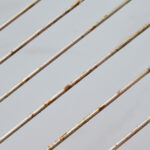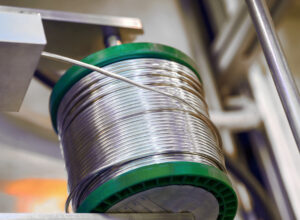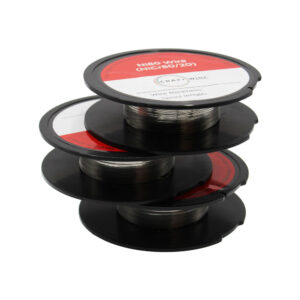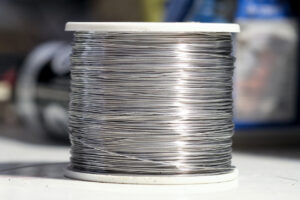Locking wire plays a crucial role in mechanical assemblies and safety-critical systems. By preventing bolts, nuts, and other fasteners from loosening due to vibration or other operational stresses, this slender yet formidable component serves as an essential safeguard. Locking wire is used in a variety of industries, from aviation and automotive to heavy machinery, demonstrating its universal importance in ensuring structural integrity.
Providing solutions in this critical area is The Crazy Wire Company, a name synonymous with excellence and reliability. The Crazy Wire Company has established itself as a trusted provider of high-quality metal wires through years of experience and commitment to quality. With our extensive range of products, we are able to meet both standard and specialized needs, ensuring that every locking wire application is met to the utmost precision and effectiveness. Our wires are designed to deliver performance, durability, and peace of mind, whether they are used for routine maintenance or complex engineering projects.
This blog will discuss this application in great detail and hopefully help to make the right decision for your project.
Let’s go…
What is Locking Wire?
Locking wire, or safety wire or lockwire, is a type of wire used to secure fasteners and prevent them from loosening or falling out due to vibrations. Various mechanical and engineering applications require this wire to maintain safety and integrity. A locking wire is typically made from stainless steel, Monel, or other durable materials and threaded through fasteners in a particular pattern before being twisted and tightened. If one fastener loosens, the tension in the wire counteracts it, thereby maintaining the integrity of the assembly.
Locking wire has been used since the early days of aviation and automotive engineering, when vibrations caused by these machines could loosen critical fasteners, resulting in failures. A simple yet effective solution to this problem was provided by locking wires. A locking wire’s application has expanded beyond aviation and automotive industries to include electrical installations, industrial machinery, and even performance and racing vehicles.
Bolts, screws, and nuts are usually secured with locking wire in areas that experience significant vibration or movement. In some cases, locking wire is also used to indicate tampering, thus serving as a security measure in addition to preventing loosening. Despite the toughest conditions, the wire’s flexibility, tensile strength, and resilience make it an indispensable tool for maintenance and assembly.
Types of Metal Wires for Locking Applications
Material selection is crucial when selecting wire for locking applications. Depending on the environment and requirements, each type of metal wire offers unique characteristics and benefits. Crazy Wire Company offers a variety of metal wires, including stainless steel, galvanized steel, and copper, each serving a specific locking purpose.
Stainless Steel Wire: The strength, durability, and corrosion resistance of stainless steel wire make it an ideal choice for locking wire in harsh environments. Typically, this wire contains chromium, which protects it against corrosion and rust. Its high temperature resistance and non-magnetic properties make stainless steel wire suitable for a wide range of industries, including aerospace, automotive, and marine. Despite extreme conditions, its strength allows it to maintain tension and hold fasteners securely.
Galvanized Steel Wire: In order to prevent rust and corrosion, galvanized steel wire is coated with a thin layer of zinc. In outdoor environments or areas with high moisture, this added layer of protection makes it more durable than regular steel. Though galvanized wire is not as heat resistant as stainless steel, it remains a robust and cost-effective option for general locking applications, particularly in construction, agriculture, and automotive. Strength, flexibility, and corrosion resistance are its main advantages.
Copper Wire: The copper wire, which is known for its excellent conductivity and malleability, is another option for locking wire, particularly in electrical applications. Due to its high flexibility, it is easy to handle and install. The corrosion resistance of copper wire, especially in environments where the wire might be exposed to electrical currents or varying temperatures, is a significant advantage over steel wire. In electrical systems, HVAC units, and delicate fastening applications, copper wire is often used.
Other Metal Wires: For locking applications, other metal wires such as Monel, Inconel, or titanium may also be used. In advanced engineering applications like aerospace and chemical processing, these specialized wires are designed for extreme conditions, offering high temperature and corrosion resistance.
Choosing the Right Locking Wire for Your Application
Selecting the appropriate locking wire for a particular application involves considering several key factors:
Strength and Flexibility: It is essential that the wire is strong enough to hold fasteners securely without breaking. During installation, it should also be flexible enough to be twisted and manipulated easily.
Corrosion Resistance: Wires with high corrosion resistance are essential when exposed to moisture, chemicals, or corrosive substances.
Temperature Tolerance: Thermally stressed wire should be able to maintain its properties and strength in high temperature applications, such as engine compartments or industrial machinery.
Specific Application Needs: Take into account the application’s specific requirements. A conductive wire like copper may be preferred in electrical systems, whereas stainless steel or galvanized wire might be better suited to marine applications due to their saltwater corrosion resistance.
To match the wire type to specific locking needs, these factors must be taken into consideration. Due to its strength and temperature resistance, stainless steel wire is often used for aerospace applications, whereas galvanized wire may be better suited for general use in environments where moisture is a concern but extreme temperatures are not. With its flexibility and conductivity, copper wire is ideal for electrical applications. Ultimately, the selection should be based on environmental conditions, mechanical stresses, and the specific requirements of the equipment or machinery where the locking wire will be installed.
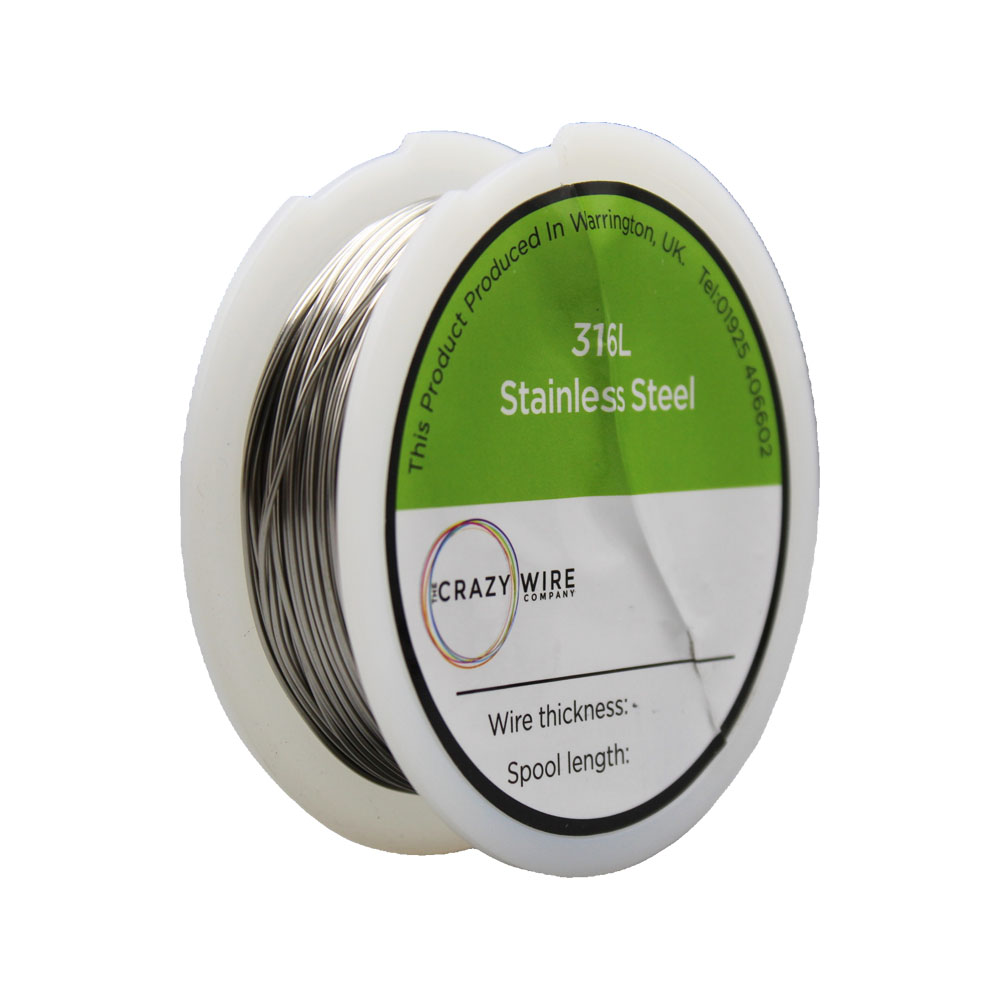
When asked, we would recommend 0.8mm 316L stainless steel as the premier choice for locking wire.
In harsh environments such as saltwater exposure or corrosive chemicals, this grade of stainless steel is renowned for its superior corrosion resistance. Its 0.8mm thickness strikes the perfect balance between flexibility and tensile strength, making it easy to handle and twist while ensuring a firm, secure grip. Furthermore, 316L stainless steel is known for its excellent weldability and formability, which further enhances its versatility. For securing critical components in demanding conditions, users can choose 0.8mm 316L grade stainless steel wire.
Practical Tips and Best Practices
Effective handling and installation of locking wire are crucial for ensuring the safety and longevity of mechanical assemblies. Here are some practical tips and best practices:
Correct Gauge Selection: Choose the right gauge of wire for your application, considering the size of the components being secured.
Proper Tools: Use appropriate tools, such as safety wire pliers, to ensure tight and secure twists without damaging the wire.
Consistent Tension: Maintain consistent tension while twisting the wire to prevent loosening. The wire should be taut but not overly tight, as this can lead to breakage.
Correct Twisting Technique: The wire should be twisted in a direction that tightens the fastener in case of loosening. Typically, the standard is one to one and a half twists per inch.
Regular Inspections: Regularly inspect locking wire for signs of wear, corrosion, or damage. Replace it immediately if any defects are detected.
Safety First: Always wear protective gloves and eye protection when cutting and installing locking wire to avoid injuries.
Why Choose The Crazy Wire Company for Your Locking Wire Needs?
The Crazy Wire Company stands out as the premier choice for all your locking wire needs, offering a blend of quality, variety, and unparalleled customer service.
Quality and Variety: Our wide selection of high-quality metal wires includes stainless steel, galvanized steel, and copper, so you can find the perfect match.
Exceptional Customer Service: Our team is committed to providing exceptional customer service. Regardless of what you are looking for, we are here to help you with product selection, usage advice, and any other questions you may have.
Custom Solutions and Expertise: We provide custom wire solutions to meet unique requirements based on our expertise in wire solutions. Depending on the application, our team can advise on the best wire type and gauge.
A locking wire is essential to the safety and reliability of mechanical systems.
Crazy Wire Company offers a wide range of high-quality wires for diverse locking needs, from stainless steel to copper. To maximize the benefits of locking wire, it is important to install it correctly and maintain it regularly. The Crazy Wire Company offers top-quality products, expert advice, and custom solutions.
Please contact us with any specific needs or questions you may have, ensuring the success of your projects.
We offer also a massive range of stainless steel wire and nichrome wire through our store. Choose the wire that you want to work with and we’ll get spooling.
If you’re interested in learning more about wire, check out our other blog on Everything You Need to Know About Wires.
We are also proud to supply this product on our highly popular eBay store, check us out there too.
Thank you for checking out our site.

Nichrome Wire Safety: Top Tips for Working Safely
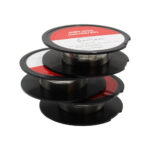
Best Wire for Electronics Projects
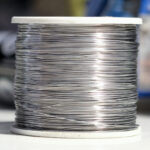
Is Ni80 Wire Suitable for DIY Heating Elements

Wire Grades Explained
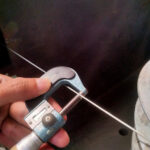
How Wire Diameter Affects Strength and Flexibility

How to Cut and Shape Wire for Custom Applications

Can Wire Be Used in 3D Printing?

How Wire Composition Affects Conductivity
